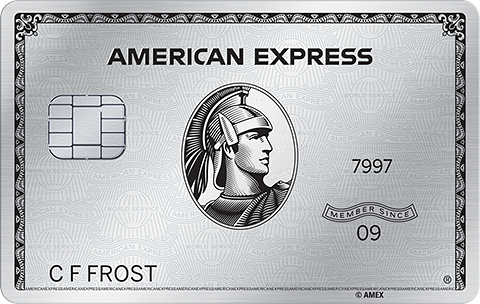One Big Balance Transfer vs. Several Smaller Ones -- Which Saves More?

Image source: Getty Images
If you've got debt spread across several cards, you're not alone. There's a smart way to fix it: a balance transfer card.
The big question is whether to combine everything into one large balance transfer or split it across a few 0% intro APR cards. When you're paying 20%+ interest, choosing right could save you hundreds -- even thousands -- over time.
To walk through the math, I'll use one of my favorite examples: the Wells Fargo Reflect® Card (rates and fees). It currently offers one of the longest intro APR periods on the market: 0% intro APR for 21 months from account opening on qualifying balance transfers and 21 months from account opening on purchases (then 17.74%, 24.24%, or 28.49% Variable APR).
That unusually long window makes it an ideal case study, and a strong candidate if you're serious about paying off debt efficiently.
Why one large balance transfer often wins
Every balance transfer comes with a transfer fee, usually 3% to 5% of the amount you move. That means the fewer transfers you make, the fewer fees you'll pay.
Let's say you're carrying $9,000 in total credit card debt at an average 21% APR.
Scenario 1: One big transfer
You move your full $9,000 balance to one card like the Wells Fargo Reflect® Card, which charges a balance transfer fee of 5%, min: $5 if completed within the first 120 days.
- 5% of $9,000 = $450 in fees.
- You now have nearly two years to pay it off interest-free.
- Paying about $450 a month would clear the balance by the end of that period -- saving roughly $2170+ in interest versus leaving it on your old cards.
After subtracting the $450 fee, you're still about $1,720 ahead, and you've eliminated nearly two years of interest charges in the process.
Scenario 2: Splitting across multiple 0% intro APR cards
Now imagine dividing that $9,000 balance into three smaller transfers -- $3,000 each -- across different balance transfer cards.
Even if each one offered the same window of 21 months from account opening on qualifying balance transfers, here's what changes:
- You'll still pay a transfer fee on each card, totaling roughly $270-$450 overall (3%-5% fee).
- Approval odds drop with every new application, and credit limits may not be high enough to move the full amount.
- Managing multiple payments and due dates adds risk. One late payment could cancel your intro APR entirely.
So while splitting your balances might sound flexible, the extra complexity rarely pays off. For most people, one card with one long intro APR offer -- like the Wells Fargo Reflect® Card -- is easier, cleaner, and just as cost-effective.
Good/Excellent (670-850)
Intro APR 0% intro APR for 21 months from account opening on purchases and qualifying balance transfers
Purchases: 0% intro APR for 21 months from account opening on purchases
Balance Transfers: 0% intro APR for 21 months from account opening on qualifying balance transfers
Regular APR
17.74%, 24.24%, or 28.49% Variable APR
Rewards
N/A
Annual Fee
$0
Welcome Offer
N/A
-
This no-frills card is a solid choice if your priority is to avoid credit card interest for as long as possible. It offers an incredible 0% intro APR for 21 months from account opening on purchases and qualifying balance transfers (17.74%, 24.24%, or 28.49% Variable APR after). The balance transfer fee (5%; $5 min.) is higher than some cards, but if you want an equally long intro APR on purchases and balance transfers, this card is hard to beat.
Read Full Review -
- Long 0% intro APR offer
- No annual fee
- Cellphone protection
- Balance transfer fee
- Foreign transaction fee
- No rewards program
-
- Apply Now to take advantage of this offer and learn more about product features, terms and conditions.
- 0% intro APR for 21 months from account opening on purchases and qualifying balance transfers. 17.74%, 24.24%, or 28.49% variable APR thereafter; balance transfers made within 120 days qualify for the intro rate, BT fee of 5%, min: $5.
- $0 annual fee.
- Up to $600 of cell phone protection against damage or theft. Subject to a $25 deductible.
- Through My Wells Fargo Deals, you can get access to personalized deals from a variety of merchants. It's an easy way to earn cash back as an account credit when you shop, dine, or enjoy an experience simply by using an eligible Wells Fargo credit card.
Remember: Pay it off before the 0% period ends
No matter which card you use, the real savings come from finishing your payoff before the intro period expires.
Once the 0% intro APR ends, any remaining balance will start accruing interest -- often above 20%.
Divide your total balance (including balance transfer fee) by the number of months in your intro period to find your ideal monthly payment. For example, with 21 months and $9,450 owed, aim for roughly $450 per month to finish on time.
The bottom line
If you can qualify for a high enough limit, one big balance transfer usually saves more than splitting your debt across multiple cards.
With the Wells Fargo Reflect® Card, you'll pay one fee, make one monthly payment, and get nearly two years to pay off your balance interest-free -- one of the longest timelines available.
If your goal is to finally get ahead, this card can help you do it the smart way.
See our full Wells Fargo Reflect® Card review to learn how the intro APR offer works and whether it's right for you.
Our Research Expert



